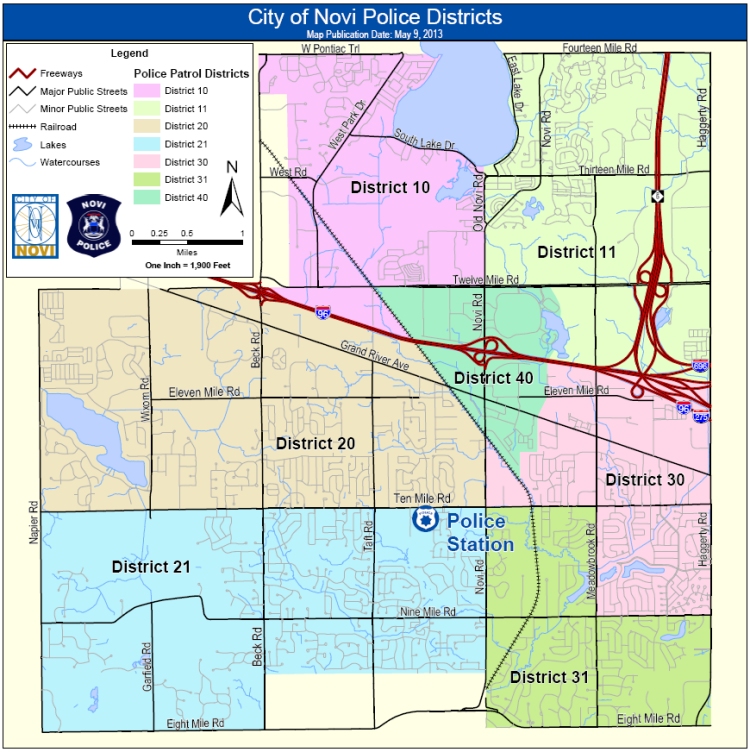The Novi Police Department strives to continue as a professional, proactive, and service oriented law enforcement agency. Our focus is on problem oriented and community oriented policing which is embodied in our vision statement; “Partners With Our Community.” The women and men who comprise the Novi Police Department are committed to enhance the quality of life and lessen the criminal fears of all citizens, business leaders, and visitors.
The Administration of the Novi Police Department is responsible for directing the overall operation of the organization. This includes the daily operations of all divisions, sections, and units, in addition to research, planning, fiscal management, and personnel recruiting, hiring, and development.
The Police Administration consists of the following personnel:
Erick Zinser - Director of Public Safety / Chief of Police
Scott Baetens - Assistant Police Chief
Pat Cauchi - Budget Analyst
Robert Manar - Training and Standards Sergeant
Renee Landis - Administrative Assistant
The Administrative team of the Novi Police Department is prepared to assist you with any questions or concerns that you might have. Please do not hesitate to contact us if you need assistance.
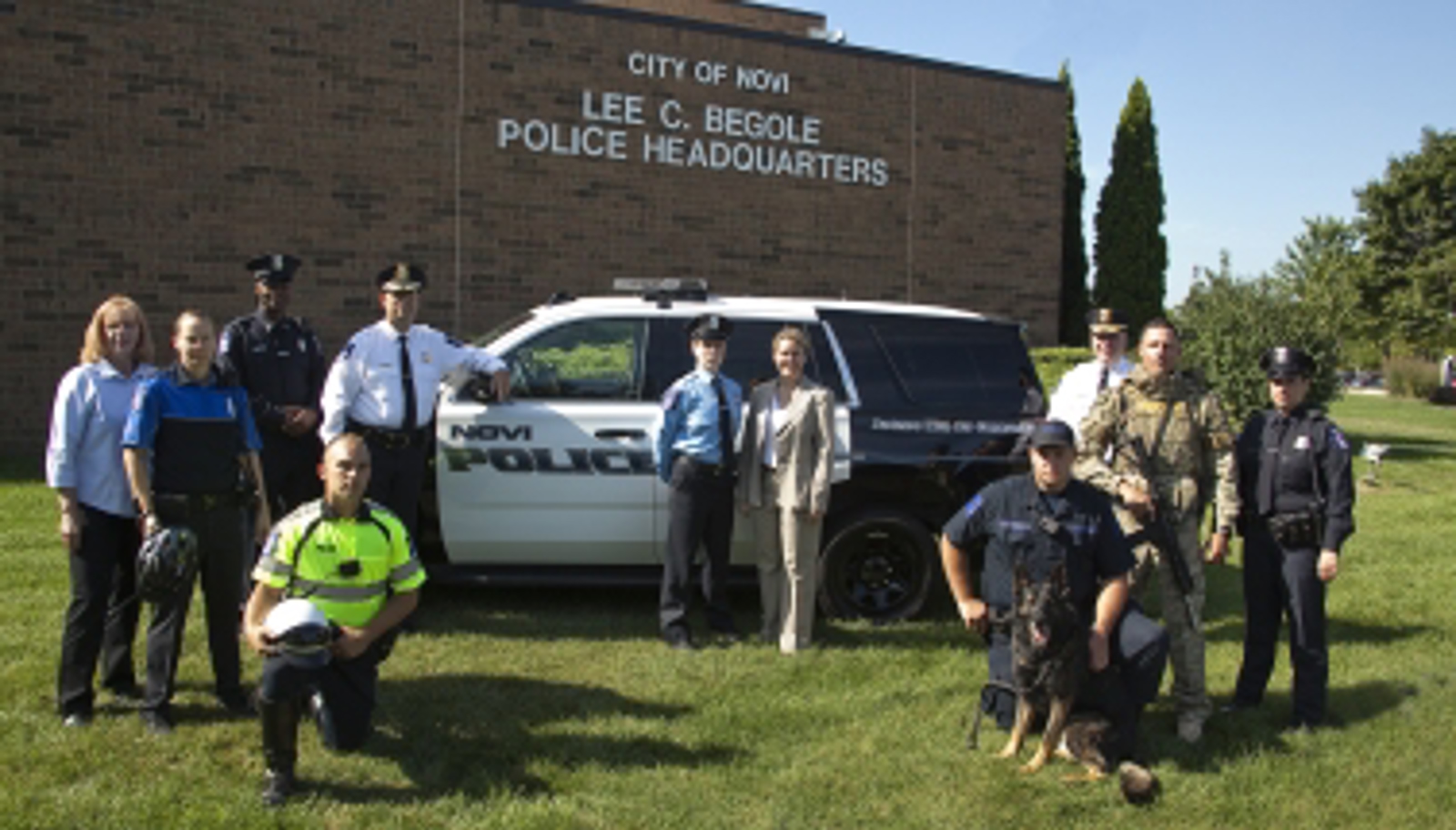
The Novi Police Department is committed to excellence.
We believe in the dignity and worth of all people.
The members of our police department will partner with the community and other agencies in an effort to prevent crime and maintain a secure environment in which to live and work. We will address the needs of each individual whenever called upon.
As an employer, we will provide a work environment that recognizes the value of each person and encourages their growth and development within the organization.
The Novi Police Department will strive to maintain the highest integrity and professionalism to accomplish our mission. We will endeavor to lead the field in Community Policing and will always respond to the changing needs of our citizens.
Values
We, the members of the Novi Police Department, are committed to serving our community. In order to fulfill that mission the following values have been adopted.
Integrity
Professionalism
Excellence
|
Partnerships
Leadership
Accountability
Empowerment
|
Mopeds
"Go-Peds"
Paint Ball Guns
Golf Carts on Roadways
Seat Belts
Mopeds
Gopeds/ Mopeds/ Electric VehiclesIn late 2006 the Michigan Legislature amended MCL 257.25b and modified the definition of a low speed vehicle to conform to federal standards. As now defined, a low speed vehicle means a four-wheeled motor vehicle whose speed attainable in 1 mile is more than 20 mph but not more than 25 mph on a paved level surface. A low speed vehicle must be equipped as necessary under both federal standards and Michigan Law. The operator must have a driver license and the vehicle must be registered and insured. Question: Where can I legally ride a goped? Answer: A goped, while not specifically defined in the Michigan Vehicle Code, does fall under the definition of a moped (MCL.257.32b) . Mopeds are required to have certain equipment such as; a headlight, brake light, seat, horn, muffler, and brakes on each wheel, in order to be legally operated on the roadway. In addition, the operator of a moped must be at least 15 years of age, have a moped license or an operator/chauffeur license, and the vehicle must be registered with the Department of State and display a valid registration plate. Finally, a person operating a moped must wear an approved crash helmet if they are under 19 years of age. Because gopeds are not equipped with the required equipment they cannot be legally driven on the roadway. Also, by definition they are a motor vehicle and therefore cannot be driven on a sidewalk constructed for use by pedestrians. |
The Novi Police Dept. would like to clarify the laws regarding Mopeds.
- License / Drivers Age:
Minimum drivers age is 15 yrs old and a special Moped license must be obtained from the Secretary of State. Otherwise a valid drivers license is needed. - Helmet Use:
Less than 19 yrs of age must wear an approved motorcycle helmet. - Driving on the Sidewalk or Bike Paths:
Is not permitted. - Roadway Use:
Mopeds may be operated on the roadway if it displays a valid permit and all traffic laws are obeyed. Mopeds must be driven as near to right side of the roadway as possible. - Driving with Passengers:
No passengers are permitted. - Registration:
Mopeds are required to be registered with the Secretary of State and a registration decal must be affixed to the rear bumper.
Contact the Novi Police Department at 248-348-7100 regarding any questions.
"Go-Peds"
Go-Peds are not permitted to be operated within The City of Novi.
Go-Peds fall under the definition of a Moped. However, without all of the accessories needed for operation, i.e., SEAT, REARVIEW MIRROR, HORN, HANDLEBAR HEIGHT REQUIREMENTS, STOP / BRAKE LIGHT, FRONT & REAR BRAKES, and HEAD LIGHT, this type of vehicle can not be operated in the roadway and laws prevent the use of it on a side walk.
Also, City of Novi ordinances prevent the operation of "Go-Peds" on private property.
Contact the Novi Police Department at 248-348-7100 regarding any questions.
Paint Ball Guns
City of Novi ordinance prevents the possession or use of a "PAINT BALL" gun outside of ones domicile.
This ordinance also applies to all air guns, BB guns, gas operated guns, spring gun, slingshots, wrist rockets, peashooter, or any bow.
Contact the Novi Police Department at 248-348-7100 regarding any questions.
Golf Carts on Roadways
Are golf carts legal to drive on the roadway? We've received a number of calls recently in relation to the legality of golf carts being driven on the roadway. The Novi Police Department would like to clear up some misunderstandings and misconceptions about use of these types of vehicles.
The definition of a Low Speed Vehicle was amended in 2006 to include vehicles that are powered by gasoline, propane, electric, or any other current or future form of motive technology. Golf carts have to meet all current federal motor vehicle safety standards, as well as EPA emission standards.
If a low speed vehicle (golf cart) is not equipped with a roof that meets federal standards for rollover protection, the occupants are required to wear approved helmets.
Low speed vehicles are limited to the type of road that they can be operated on. They are limited to streets with a speed limit of 35 mph or less, and cannot be operated faster than 25 mph.
If you have additional questions, please contact the Novi Police Department at 248-348-7100.
Seat Belts
Michigan has a primary seat belt law, which means law enforcement can stop and ticket motorists solely for not being buckled up.
The law requires:
- Passengers 8-15 to buckle up in all seating positions
- Drivers and front seat passengers to be buckled up
Michigan's child passenger safety law requires:
- Children younger than age 4 to ride in a car seat in the rear seat if the vehicle has a rear seat. If all available rear seats are occupied by children under 4, then a child under 4 may ride in a car seat in the front seat. A child in a rear-facing car seat may only ride in the front seat if the airbag is turned off.
- Children to be properly buckled in a car seat or booster seat until they are 8 years old or 4-feet-9-inches tall. Children must ride in a seat until they reach the age requirement or the height requirement, whichever comes first.
- To view Michigan's Seat Belt law, click here.
What to Do and Expect When Pulled Over by Police (Revised January 2021)
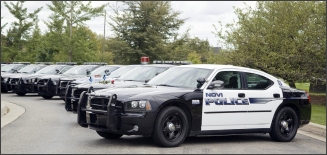 Police officers are responsible for conducting traffic stops when they have reasonable suspicion of a traffic violation or a criminal violation. Being stopped by an officer can be a stressful experience for the driver, any passengers, and for the officer, too. Knowing what to do during the stop will help ensure your safety and the safety of others.
Police officers are responsible for conducting traffic stops when they have reasonable suspicion of a traffic violation or a criminal violation. Being stopped by an officer can be a stressful experience for the driver, any passengers, and for the officer, too. Knowing what to do during the stop will help ensure your safety and the safety of others.
- When you see emergency lights behind you, it is important for you and your passengers to stay calm and cooperate. Remember to:
- Activate your turn signal and pull off or to the side of the roadway as soon as it is safe to do so.
- Turn off the engine and any audio devices.
- Stay in your vehicle unless directed by the officer to exit.
- Turn on your interior lights if you are pulled over at night to assist with visibility. Officers may use a spotlight for additional visibility.
- Keep your hands on the steering wheel or in a visible location so they are easily observable.
- Follow all instructions the officer gives you or your passengers.
The officer may approach either side of the vehicle. When the officer approaches the vehicle, remember to:
- Lower the corresponding window so you and the officer can better communicate.
- Let the officer know if you have a weapon in the vehicle upon first contact.
- Wait for the officer’s instructions before reaching for your driver’s license or vehicle documents.
When conducting the stop, the officer will typically:
- Show their law enforcement credentials if they are not in uniform. If they do not show their credentials, you may ask to see them.
- Explain why you were stopped/ask questions about your trip.
- Ask for your driver’s license, proof of insurance, and vehicle registration. If the documents are out of your reach, tell the officer where they are and wait for the officer’s acknowledgement before reaching to retrieve the documents.
In some cases, the officer may:
- Ask you to exit the vehicle. In this case, keep your hands visible, exit the vehicle, and stand in a location as directed by the officer.
- Impose a sanction such a warning, traffic ticket which may include a fine, or arrest. The officer will typically explain whatever action is being taken. If they do not, you may ask them to do so.
If you have questions, respectfully ask the officer to clarify. If you disagree with the officer’s decision or course of action, do not prolong the contact by arguing with the officer. Rather, you may seek to contest the decision in court through established legal channels.
If you believe the officer acted inappropriately or have questions regarding their conduct you may request to speak to a supervisor. This is best done as soon as possible after the stop.
Following these procedures can help make a traffic stop a safe experience for all parties involved.
Protecting Your Home from Burglars
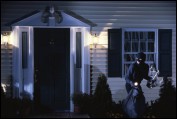 Outside Your Home
Outside Your Home
Protect your home by starting where the burglars usually start - outside.
Landscaping:
Look around. Are large trees near the house? Prune lower limbs that could help a thief climb in second floor windows. Trim trees and bushes so a burglar cannot use them for cover. High wooden fences also allow a burglar to work unnoticed. Remember to lock up ladders and tools. Ask your neighbors to do the same. Trellises look great, but place them where they cannot be used as ladders to the second floor.
Lighting:
Criminals avoid the spotlight. Porches, yards, and all entrances to your home and garage should be well lit.
Your House Number:
Make sure law enforcement or fire agencies can locate your house in an emergency. Your house number should be clearly visible from the street day and night. Use numbers that are 6 inches high and made of reflective materials or black numerals against a white background. Avoid script numbers - they can be confusing. If your house is some distance from the road, post the number at the driveway entrance. If you live on a corner, make sure the number faces the street named in your address.
Windows:
An easy, inexpensive way to secure double-hung windows is to use a nail. Drill an angled hole through the top frame of the lower window partially into the frame of the upper window. Then insert a nail or an eyebolt. The window cannot be opened until you remove the nail. Make a second set of holes with windows partially open so you can have ventilation without inviting intruders. For sliding windows, try the preventative tips suggested for sliding doors.
Doors:
Hinged Doors
Entry doors should be solid core wood (at least 1 3/4 inches thick) or metal. Most hollow core doors can be easily broken through. They offer little protection, no matter what locks you use. Your door should fit its frame tightly - with no more than 1/8-inch clearance between the door and frame. If the gap is too large, replace the door. If that is too expensive, bolt a sturdy metal strip to the door edge. You boost your protection and save energy. Any hardware dealer can show you the kind of strip to use. Doors with decorative glass panels or windows are an easy mark. It takes only seconds to break the glass and unlock the door. If you do not want to replace the door, install a break-resistant plastic panel or decorative grill over the glass. Attach the grills with non-removable screws. Most door hinges are on the inside, safe from a burglar's tools. If hinges are on the outside, the hinge pins can be easily removed and the door taken out of the frame. To protect such doors, replace hinges with new ones with non-removable pins.
Sliding glass doors
Burglars look for sliding glass doors because they are easy to open. Several types of locks are made especially for these glass doors. The existing lock can be bolstered by placing a solid strip of wood in the track of the closed door. That helps block the door even if the lock is broken. Determined thieves may lift the door off its tracks. Use these preventative tips:
- Adjust rollers so the door cannot be pushed up enough to lift it off the track.
- Insert screws along the upper track of the door. Leave enough room for the door to slide, but not enough space to lift the door out.
- Drill a hole and insert a nail through the inside frame and part way through the metal door frame. You can remove the nail, but a burglar cannot.
Locks:
Deadbolt Locks
A deadbolt lock can provide good protection. When you turn the key, the lock mechanism slides a strong metal bolt from the door into the frame. When you buy a deadbolt lock, make sure:
- The bolt extends at least 1 inch from the edge of the door (has a 1-inch thro).
- The connecting screws that hold the lock together are on the inside of the door.
- The strike plate is attached to the door frame with screws that measure at least 3 inches.
- The cylinder has a steel guard - a ring around the key section. The cylinder guard should be tapered or rotated around the key to prevent wrenching if twisted.
Double-Cylinder Deadbolt Locks
The Novi Police and Fire Departments do not recommend Double-Cylinder Deadbolt locks for safety reasons. In case of an emergency, we want the resident to get out of the house quickly.
Padlocks
Padlocks are typically used for garages, sheds, and workshops. Look for a sturdy padlock that does not release the key until the padlock is locked. Be sure the padlock is case-hardened with a 3/8-inch shackle so it can resist bolt cutters. A double-locking design can prevent the shackle being pried away from its case. Remember that a padlock is only as good as the hasp on which it is mounted. The hasp should be secured with bolts that are concealed when the padlock is locked. All the hardware in the world will not protect you if you open your door without checking who is on the other side. Buy an inexpensive viewer. Tell your children and their babysitters not to open the door to strangers
Remember, always use your locks. Even a five-minute trip to the store is long enough for a burglar to enter you home.
Keys:
Victims report that as many as half of all burglaries take place without forced entry. In many cases, the burglar used a key. Be sure your keys do not fall into the wrong hands.
- Never carry identification tags on your key ring or holder.
- When you move into a new home have the locks re-keyed or changed. A locksmith can do this or, if you are handy with tools, you can change the lock yourself.
- Know who has every key to your home. Do not give keys to maintenance or delivery people.
- Do not hide your key outside. Burglars know all the hiding places.
Security Alarms:
If you desire additional security, you might consider a burglar alarm system. Be sure you deal with a reputable firm that provides approved systems.
How to Have a Safe Vacation
On The Road:
- Never carry large amounts of cash; use traveler’s checks. If you must carry large sums of money, do not display it openly.
- Keep a record of traveler’s checks and credit card numbers in a safe place. Have the telephone numbers to call in case your checks or credit cards are lost or stolen.
- Be aware of your surroundings and never advertise your plans, including travel routes and the amount of cash you are carrying.
- Do not stop to offer help to a stranded motorist. Go to the nearest telephone booth, and call for assistance.
- If you suspect someone is following you, drive to the nearest service station, restaurant, or business and call the police or sheriff’s department. If you believe it is unsafe to get out of your car, honk your horn and flash your lights to draw attention.
- If your car breaks down, raise the hood and attach a white cloth to the car antenna as an emergency signal. Stay in your locked car; ask anyone who stops to call the police or a garage. If you must abandon your car, keep all passengers together.
Hotel and Motel Security:
When staying overnight at a hotel or motel, remember the following:
- Determine the most direct route to and from your room to the fire escapes, elevators, and nearest telephone.
- Use all auxiliary locking devices on door and windows. You may want to purchase a port-able door lock for traveling.
- Use the door viewer to identify anyone re-questing entry. Open the door only if you are certain the person has a legitimate reason to enter your room. If in doubt, call the office.
- Unpack and place belongings in the closet and dresser. Arrange your things so you will know if anything is missing.
- Consider locking any electrical appliances in your luggage. Suitcases should always be locked so they cannot be used to carry your property out of your room.
- Never leave money, checks, credit cards, or car keys in the room. Take them with you.
- Use the hotel/motel safe to store extra cash, expensive jewelry, or other valuables.
- Report any lost or stolen items to the management and to the police.
- Report to the management any suspicious movements in the corridors or rooms.
Car Security:
- Always lock your car.
- Always lock valuables out of sight, preferably in the trunk. Always carry wallets, checkbooks, and purses with you.
- Do not advertise that you are a tourist. Place maps and travel brochures in the glove compartment.
- Park in well-lit, busy areas.
- Check the back seat before getting into your car.
- Mark your car radio and other removable car equipment with your driver’s license number (by “CA” for identification.)
Sightseeing:
Remember: Planning reduces your chance of becoming the victim of a crime.
- Ask for directions at the hotel/motel to those attractions you want to visit.
- Select tour guides carefully.
- Ask if any areas in town should be avoided. Stick to well-lit main streets and public areas.
- Looking lost may make you look like an easy target for crime. If you do get lost, find an open business and ask for directions.
- Only carry with you the cash you will need, and carry only small denominations.
- If older children go off separately, be sure they understand the importance of keeping track of time and returning promptly at appointed hours.
When You Return Home:
If you suspect your home has been burglarized:
- Do not go in. Go to a neighbor’s, and call police immediately. Wait outside for them to arrive. Do not try to confront a burglar.
- After a burglary, do not touch anything. Call the police immediately - a delay can reduce the chances of catching the criminal.
At Home:
An empty house is a tempting target for a burglar. Use this checklist of tips to safeguard your home while you are gone.
- Have good locks on all doors and windows, and use them.
- Engrave your valuables with your driver’s license number (preceded by “MI”) or other identification number and post “Operation Identification” stickers in entry doors and windows.
- Never leave your house key hidden outside under a doormat, in a flower pot, or on the ledge of a door.
- Tell your Police Department you plan to be away. Patrol officers may be able to check your home periodically. Call 248-348-7100 and request a Home Watch form, or complete the Home Watch form online.
- Stop all deliveries, or arrange for someone to pick up your mail, newspapers, and packages.
- Arrange for someone to mow your lawn or rake leaves to give your home a lived-in look.
- Use timers to turn lights and a radio on and off at appropriate times.
- Hide garbage cans in the basement of a storage shed. Empty cans when everyone else’s is full can tell a burglar you are away.
- Turn the bell on your telephone down low so a burglar will not be alerted to your absence by its ringing.
- Close and lock garage doors and windows. Ask a neighbor to park occasionally in your driveway. If you leave your car at home, park it in the driveway rather than the garage. Have your neighbor move it occasionally so it looks like you are using it.
- Leave your blinds, shades, and curtains in a normal position. Do not close them unless that is what you do when you are at home.
- Ask a neighbor to watch the house while you are away. Leave your vacation address and telephone number with a neighbor so you can be reached in case of emergency.
Michigan Seat Belt Law
 Michigan has a primary seat belt law, which means law enforcement can stop and ticket motorists solely for not being buckled up.
Michigan has a primary seat belt law, which means law enforcement can stop and ticket motorists solely for not being buckled up.
The law requires:
- Passengers 8-15 to buckle up in all seating positions
- Drivers and front seat passengers to be buckled up
Michigan's child passenger safety law requires:
- Children younger than age 4 to ride in a car seat in the rear seat if the vehicle has a rear seat. If all available rear seats are occupied by children under 4, then a child under 4 may ride in a car seat in the front seat. A child in a rear-facing car seat may only ride in the front seat if the airbag is turned off.
- Children to be properly buckled in a car seat or booster seat until they are 8 years old or 4-feet-9-inches tall. Children must ride in a seat until they reach the age requirement or the height requirement, whichever comes first.
- To view Michigan's Seat Belt law, click here.
False Alarm Information
You Can Help! Fact: 93% of all false alarms are caused by human error.
Help stop False Alarms
“False Alarms are defined in the Township as any alarm condition which is registered at the Police Department, Fire Department or elsewhere, not resulting from the activity for which the alarm was intended”.
The Most Common Causes of False Alarms:
- System Users
- Physical changes to Facility
- Displays and Decorations
- Malfunctioning equipment
- Heat Vents
- Air Conditioning Vents
- Fan (ceiling and table)
- Small Animals
REMEMBER: Storms and Bad Weather should not activate your alarm.
Helpful tips to ELIMINATE FALSE ALARMS
- Make sure all users have proper knowledge of codes and operations of the alarm. Know how to disarm the alarm.
- If the system was installed for a certain type of facility and remodeling occurs, the alarm should be inspected for suitability to the changes that have been made.
- Carefully arrange all decorations, banners and displays. Floating balloons can interfere with the motion detectors and activate alarms.
- Replace main battery to meet manufactures specifications.
- Faulty Equipment - If you cannot identify the cause of the activation – contact your alarm company to have motion detectors checked along with basic equipment.
- Heat rises and can cause enough motion to activate alarms, as can air conditioning currents.
- Motion detectors easily detect small animals, (birds, cats, rodents, etc.) Use caution against their entering the premises.
- Schedule routine system maintenance and checks by the Alarm Company.
- Alarmed areas must be protected from access. Security systems must not be the only barrier - all alarmed doors should have secure locks.
False Alarm Procedure
- Turn off alarm
- Call the alarm company and provide pass code
- Contact Novi Police Dispatch and report the false alarm at 248-348-7100
The Residential Burglar Alarm System
A residential burglar alarm system should be simple to operate and designed to fit in with the lifestyle of the family it is protecting. Otherwise, the alarm system will cause false alarms and the family will soon stop using it.
Commercial Burglar Alarm System
Burglary protection for commercial risks should consist of a combination of physical security and burglar alarm protection is to detect the intrusion in the event the physical security fails.
Prevent False Alarms
- Before leaving, check that all exterior doors are closed and locked.
- Before leaving, check that all motion sensor areas are clear of moving signs, displays, reflective/helium balloons, etc.
- Know how to cancel a false alarm quickly.
- All personnel should be periodically trained in proper alarm operating procedures and false alarm prevention.
- Report any arming or disarming problems to your alarm company immediately.
Crime Prevention Tips for the Disabled
Disabled persons face many physical challenges which can make them vulnerable to would-be assailants who assume the disabled are incapable of protecting themselves.
If you are disabled person or know someone who is, the following information may be helpful. Take your time to read and remember these tips. You may be able to prevent yourself or a friend from becoming a victim of a crime.
General Crime Prevention Tips
- Know and avoid situations and locations that could invite crime, such as dark alleys, unlit parking lots, etc.
- Decide what you plan to do in the event you are confronted - i.e., show confidence; scream, etc.
- Consider your options in these situations and practice your responses often so that you can recall them in a real situation.
Home Security Tips
- Consider having a peephole installed in your doors. Make sure you have the proper locks on doors and windows and use them while you are at home as well as when you are out.
- Never open the door for a stranger. Always demand verification of the stranger's identity and the purpose of the visit.
- Never tell a stranger calling by phone that you are alone or that you are disabled.
- Plan an avenue of escape from each room in your residence in case of emergency, such as a break-in or a disaster.
Consumer Protection Tips
- Always ask for identification from all door-to-door solicitors, and call their agency for verification.
- Don't commit yourself to purchases or charitable donations over the phone. Ask the caller to mail the information to you so you can make an informed decision. If you are not familiar with the company or organization, consult the State Department of Consumer affairs or the Better Business Bureau.
- Be sure to read and understand all contracts before you sign them. If your sight is impaired, have someone you trust read the entire document.
- Beware of anyone who is offering products or services at a "once in a lifetime" offer.
- Consider having your checks mailed directly to your bank to avoid mail theft or robbery.
Travel Safety
- Whenever possible, travel with someone you know. There is safety in numbers.
- Leave word of your plans - including your ultimate destination and estimated time of return - with family or friends.
- When waiting for a bus, train, etc., wait in a centralized location near other passengers.
- When riding the bus, sit as near to the driver as possible, particularly during late hours.
- Keep your handbags and packages on your lap instead of the floor or the seat next to you.
- Consider using traveler’s checks instead of carrying cash.
- Be aware of those around you, particularly when exiting a bus or train.
- If you have a speech or hearing impairment, always carry a card of communication symbols
If You Become a Victim of a Crime....
- Get help immediately by calling:
- The Police Department
- A doctor
- The Fire Department
- The sheriff's department
- A friend
- A relative
- Try to remember as many details about the assailant as possible, such as clothing,
hair color, identifiable marks, etc. - Be certain not to destroy any possible evidence.
Preventing Domestic Violence
In an emergency, DIAL 911 ...
- A woman is battered in the United States every 15 seconds. Domestic violence
can strike any household. - One-third of the homicides in this country are domestic violence-related. Domestic
violence can be fatal. - National statistics indicate that as many as 50% of all women in America
experience violence in their intimate relationships. Domestic violence is a fact. - Besides beatings, battering can involve threats of violence, verbal abuse and/or
sexual assault. Domestic violence is not something anyone enjoys, asks for,
or deserves. - Victims of domestic violence often feel isolated, powerless, fearful, guilty, and
dependent financially and/or physically. Domestic violence can leave victims feeling
trapped and unable to help themselves. - Children who learn violence at home are at risk to continue the violence in their own
relationships as adults, either as batterers or as victims. Domestic violence can
have long-term effects on children. - Spousal abuse in Michigan is a crime and the batterer can be sent to prison. Domestic violence is intolerable and must stop.
Domestic violence centers can help victims
- If you are battered, your local domestic violence program can provide you and your children with emergency shelter and services.
- In addition to finding a safe place, you may want to call your local law enforcement agency to report the batterer.
- Obtain medical help if you are injured.
- File a temporary restraining order against the batterer.
- Counselors with your local domestic violence program can help you understand your rights and help you determine the options most appropriate for you.
Domestic violence restraining orders/Personal Protection Order
A petition must be filed at the 1200 North Telegraph or circuit court in the county where you live. To obtain court-ordered relief of the following situations:
- An order restraining the attacker from abusing the victim or other family members.
- An order directing the attacker to leave the household.
- An order preventing the attacker from entering the residence, school, business, or place of employment of the victim.
- An order awarding custody or visitations with a minor child or children.
- An order restraining the attacker from molesting or interfering with minor children in the custody of the victim.
- An order directing payment of child support for minor children.
- An order directing either or both parties to participate in counseling.
What is a personal protection order?
A personal protection order (PPO) is an order issued by the court. In situations where there is a domestic relationship it can protect you from harassment, assault, beating, molesting, wounding, or stalking by another person. The order can also prohibit him/her from entering your premises and from removing minor children unless the removal is part of a court parenting time order.
A domestic relationship includes a spouse or former spouse, a person with whom you have a child, or a person with whom you have or had a dating relationship.
For immediate assistance with or information about a domestic violence situation, contact, The Family Violence Hotline: 1-800-799-SAFE (7233).
For criminal prosecution
- The Novi Police Department will process all criminal reports through the 52-1 District Court for prosecution.
- The case number of the Novi Police Department report documenting the crime may be obtained from the police. Please retain this number as it may be helpful to you and personnel at the Victim-Witness Assistance Program Office as you process your application for assistance.
Hotline Numbers
- HAVEN 24 hour crisis line: 248-334-1274
- Common Ground Sanctuary: 248-456-8150 or 24 hour help at 800-231-1127
Protect Your Car from Theft
A car is stolen nationally every 20 seconds, which adds up to more than a million stolen each year. Twenty percent of all auto thefts are a result of either keys being left in the car and unlocked doors. Facts indicate that professional car thieves have entered the field in increasing numbers; however, most cars are still taken by amateurs who can be stopped fairly easily.
The owner or authorized driver of a car should not leave the vehicle unattended without locking the ignition and removing the key. Keys should be carefully guarded. If the keys have punch-out numbers, these should be removed and kept at home for reference in case of loss.
You can greatly increase your protection against auto theft crime by taking the following precautions.
- Park in a well-lit area.
- Close all windows; lock all doors.
- Activate any theft deterrent device you may have.
- Put packages or valuables out of sight. Purses, cash, DVD players and other expensive items in full view invite theft.
- If you park in a commercial lot or garage, leave only the ignition key with the attendant.
- If you have a garage, use it. Lock both the vehicle and the garage.
- Never hide spare keys under the seat, in the glove compartment, or in the sun visor.
- If you are selling your vehicle, never let the prospective buyer test drive the vehicle without you in it.
- Carry a record of your license plate and vehicle identification number in your wallet. Do not keep your registration in the vehicle. Keep it in your purse or wallet.
- The more time consuming an auto theft is, the more likely the thief will become
discouraged and seek an easier target. - If you drive a truck, install a lockbox with a case hardened padlock in the bed.
Auto theft security devices
In order to secure your car, several devices may be installed to deter or prevent theft of the car or any of its parts or contents. Anti-theft devices, expensive or not, are only going to deter the inexperienced thief.
Wheel Locks:
This device replaces one lug nut on each tire and is key-operated. (Hub caps: special locking devices are available for certain hub caps such as the spoked hub, etc.)
Guard Plate:
Install a guard plate over the trunk lock with carriage bolts to protect the trunk cylinder.
Trunk Lock:
As an auxiliary or secondary locking device, a heavy duty chain lock may be installed inside the trunk and is key-operated.
Ignition Cut-Off (kill switch):
A key-operated or hidden manual switch that interrupts the power supply from the battery to the ignition.
Fuel Cut-Off:
Integrated into the fuel line, this device prevents the flow of gasoline once the fuel in the gas line is used. Only a special key deactivates the cut-off.
Door Locks:
Visible inside door lock buttons should be smooth and tapered.
Hood Lock:
A secondary hood lock should be installed to prevent access to the power source, battery or siren for an alarm system. A key-operated bolt, which is accessible from inside the car, or a chain and padlock accessible from the outside, should be installed.
Steering Wheel Lock:
Placed on steering wheel, stopping wheel from being turned.
Locking Fuel Cap:
Install a locking fuel cap to limit a car thief to just one tank of fuel. It won't prevent your car from being taken, but it may mean that it will be abandoned sooner. There are several alarm systems that will serve to deter or discourage the car thief and alert others of forced entry into the car. However, your anti-theft devices are primarily a deterrent to the amateur thief. An experienced thief will not be deterred by any anti-theft device.
Siren:
The sounding device, used in lieu of the horn, is installed in the engine compartment and should have an audible range of at least 300 feet.
Pin Switches:
Plunger-type switches that are installed on the doors, hood and trunk, which, when released to their furthest extension, activate the siren.
Glass Protection:
A sensing device is available that discriminates the sound of breaking glass and can be used in conjunction with switches for overall alarm protection
Voltage Sensing Device:
This device is attached to the wiring of the vehicle and triggers the alarm when a drain of power is detected, such as from an interior, hood or trunk light.
Motion-Sensing Device:
Sends out sound waves above human hearing and is activated by any disturbance in the sound wave pattern. (Note: This alarm can and has been activated by vibrations of passing vehicles.)
Mercury or Tilt Switch:
Placed in the car, this device detects any motion of the car. (Note: Cannot be used when parked on a hill, slope or other than flat ground.)
Switch Lock:
A key-operated electrical switch which turns the alarm system on and off. If placed on the outside of the vehicle, it should be in an inaccessible location. A visible switch is an indication that the car is alarmed and may deter a thief.
RV and trailer protection
- RVs are particularly susceptible to theft since they are usually loaded with items
such as cameras, radios, tires, and sports equipment. - The most common site for RV thefts is in the owner's driveway or backyard.
- Cover tempting items such as cameras, TV’s, radios and binoculars.
- Leave a low-voltage light burning and a radio on when you leave the RV at night.
- Pull curtains and blinds shut tight.
- Be sure to install good deadbolts and window locks.
- If your RV is normally left unattended, loop a case hardened steel chain around the RV's axle and a stationary object.
- Do not forget to secure the trailer's hitch.
If your car alarm should go off:
- Observe behavior around your car
- Take description and license plate numbers
- Call 911
- DO NOT TAKE ACTION. Your safety is our main concern
Be a Responsible Citizen
Here are a few things you should think about:
- Do you know all your neighbors?
- Do you watch your neighbors' homes when they are away?
- Do your neighbors watch your home when you are away?
- Do you and your neighbors work together on neighborhood problems?
- If you hear or see something suspicious, do you call the police?
- Is your active involvement in your neighborhood and community important to you?
- Do you talk to the youth in your neighborhood?
- When you see youngsters misbehaving, do you correct them?
- Do you accept complaints about your children?
- Do you know as much about your neighborhood and community as you know about national problems?
Crime Prevention for Seniors
When You Are Out
- If you must carry a purse, hold it close to your body. Do not dangle it.
- Never carry a wallet in your back pocket. Put it in an inside jacket pocket or front pants pocket.
- Make sure someone knows where you are going and when you expect to return.
- Avoid dark, deserted routes even if they are the shortest.
- Carry change for emergency telephone and transportation use.
- Whenever possible, travel with friends. Check with your senior citizen center about escort services or the police.
- When using public transportation, sit near the driver.
- Do not overburden yourself with packages and groceries that obstruct your view and make it hard to react.
- Have your car or house key in hand as you approach your vehicle or home.
- Carry a whistle or freon horn to use if you need to summon help.
- When you drive, keep doors locked and windows up. Park in well-lit, busy areas. If you have car trouble, be wary of strangers who offer help. Stay in your car an ask them to call a service truck or the police.
- If a friend or taxi takes you home, ask the driver to wait until you are safely inside.
- When walking, act calm, confident, and know where you are going. Trust your instincts: If you feel uncomfortable in a place or situation, leave.
When You Are At Home
- Use deadbolt locks on all exterior doors. Keep your doors locked at all times, even when you are inside.
- Protect windows and sliding glass doors with good locks or other security devices.
- Make your home appear occupied when you go out by using a timer to turn on lights and a radio.
- Never let repair or sales persons into your home without checking their identification. Call their company to verify their identity if you are not sure.
- Install a viewer in your door, and use it.
- If you live alone, do not advertise it. Use only your first and middle initials in telephone books, directories, and apartment lobbies.
- Get to know your neighbors, and keep their telephone numbers handy for emergencies.
- Work out a buddy system with a friend to check on each other daily.
- Engrave your valuables with a unique identification number recommended by the police. Check with local senior citizen centers for available services.
- Keep bonds, stock certificates, seldom-worn jewelry, and stamp and coin collections in a safe deposit box.
- Do not hide extra house keys under a doormat or in other obvious spots
Protect Your Money
- If you receive checks in the mail regularly, arrange for them to be sent directly
to the bank. - Avoid carrying large sums of money. If you must carry a large sum, have a friend
accompany you. - Do not display large amounts of cash.
- Do not sign a check or contract until you are sure it is for a legitimate reason. Know the details. If in doubt, check with a friend, a lawyer, or the police.
- Never put your purse or wallet on a counter while you examine merchandise in a
store.
What If You Are Assaulted?
- If the attacker is only after your purse or other valuables, do not resist. Your life and
safety are worth more than your possessions. - Make a conscious effort to get an accurate description of the attacker and call the
police. - Start a crime prevention program in your building or neighborhood. Turn your
tragedy into a helping experience for others.
Don’t Be Conned
- According to the American Association of Retired Persons, older citizens are victims of fraudulent schemes far out of proportion to their population number. Keep informed about the latest con schemes in your community by reading the newspaper. Be skeptical about any proposal that sounds too good to be true or has to be kept secret. Do not rush into anything. Check it out with friends, lawyers, police, the Better Business Bureau, or the state or county consumer affairs department.
- If you are the victim of fraud, call the police immediately. You may be embarrassed because you were tricked, but your information is vital in catching the con artist and preventing others from being victimized.
Guide for Babysitters
Caring for young children is one of the biggest responsibilities you'll ever have. You must be able to protect yourself as well as the children.
Getting the Job
- Know your employer. Baby-sit only for people you or your parents know, or for whom you have a personal reference. Answering newspaper ads may not be safe.
- Be sure to find out from your employers what time they expect to be back. Be sure they know how much you charge and when you must be home.
- Leave the name, address and telephone number of where you'll be babysitting with your parents, and tell them what time your employers expect to be home.
On the Job
- Before your employers leave, fill out the babysitter’s safety checklist at the end of this material. Do this for every job you take. Keep the form and a pencil and paper near the telephone.
- Have your employers do a safety check with you throughout their home. Find out if their home has emergency exits, a smoke alarm, or a fire extinguisher.
- Know how to work the door and window locks in the home, and use them.
- Leave at least one outside light on.
- If the telephone rings while you're babysitting, don't tell the caller that you're alone. Say you're visiting and the residents can't come to the telephone, but you'll give them a message. If the caller persists or gets rude, just hang up.
- Don't open the door to strangers, and don't tell anyone who comes to the door that you're there alone. Again, say you're visiting and will deliver a message.
- The same rules apply to daytime as well as night babysitting, with a few additions:
- During the day you might have the children out in the yard. If you're in back, make sure the front door is locked - and vice versa.
- If you take the children out to the park or anywhere else, make sure you have the house key with you when you leave. Double-check to be certain all doors and windows are locked before leaving.
- Have the children go to the bathroom before you leave to help avoid having to use public restrooms.
- When you are out with the children, don't talk to strangers. If you suspect you're being followed at any time, go to a nearby home, store, or gas station and call the police.
- When you get back to the children's home, if anything seems unusual - a broken window, an open door, a strange car parked outside - don't go in. Go to a neighbor's, and call the police.
- If at any time while you are babysitting, you are uneasy or suspicious about anything, don't hesitate to call the police.
In an Emergency
- If you suspect a fire, get the children and yourself outside. Go to a neighbor's house and call the fire department.
- If you've been able to take the safety checklist with you, call your employer and let them know where you and the children are.
- In any kind of emergency, stay calm. The most important thing to remember is that young children won't panic if you don't.
When the Job's Over
- When your employers return home, report on what happened, especially if you considered anything unusual.
- Call home to let someone know you're on your way.
- Be sure you have an escort home; this should be one of the conditions under which you accept any babysitting job.
- If, for some reason, your employers won't drive or walk you home - or seem intoxicated - ask someone at your home to come and get you.
Babysitting Safety Checklist
Address and Phone:
Where Parents Will Be:
Cellular Phone Number:
Emergency Neighbor Contact:
Child(ren)'s Doctor & Phone Number:
Allergies:
Medications:
Night Light?
Special Instructions or Routines to Follow:
Police or Fire Emergency Phone Number: 911
Poison Control Center:
Robbery Prevention
Robbery is a crime "against a person," and is a frightening experience. It can result in injury or even death to the victim. When protecting your business from robbery, it is important to remember to take preventive measures and make it obvious that those measures have been taken.
Here are some ways to discourage robbery:
- Lock unused doors.
- Avoid working alone. If you must, turn on a hidden radio or TV so robbers will think there's someone with you.
- Vary the schedule and route for your bank deposits so a robber never knows when or where to expect you. Make several deposits each day, and keep only necessary cash in the cash drawer. Then, if you are robbed, you'll cut your losses.
- Make sure your cash register is clearly visible to passersby.
- Arrange the counter so that the customer - or robber - is visible from the street.
- Avoid placing signs or displays near windows which block visibility from the street.
- Record the serial number of the bottom bill in each bin of the cash drawer, and instruct employees not to use these bills in making change.
- Keep "bait" money in a spare compartment of cash registers. The bait packet should be separated by face value as other bills. Keep a list of the serial and series year numbers to give to law enforcement officials if you're robbed.
- If your business runs an exceptionally high risk of robbery, you may want to invest in a bulletproof cashier screen. A screen "defuses" the robber's threat, but other prevention measures may be equally effective at lower cost.
- Display signs at entrances and exits indicating that safes require secondary keys not in the possession of employees.
- Advertise your security alarm system with signs in visible locations.
- Develop a mutual aid system among stores on your block. Agree to keep an eye on each others' buildings and watch for any suspicious activities.
- Place colored tape markers at exits at heights of 5-feet-6 and 6 feet. Then, if you are robbed, you can get an accurate estimate of the suspect's height as he leaves.
- A robbery may be over in less than a minute. You need a quick eye to get a good look at the robber. That's why many stores place hidden cameras behind cash
registers.
If a robbery happens
- Someone points a gun at you and demands your money. What do you do? Give it to him. Never refuse a robber.
- If you have a silent alarm and can reach it unnoticed, use it. Otherwise, wait until the robber leaves. (Use your alarm with care. Excessive false alarms can cause problems for law enforcement and for you.)
- If possible, signal other employees. Have a pre-arranged signal for such emergencies. Again, if the robber will see you, wait. Try to avoid sudden moves. Many robbers are just as nervous as you.
The most important thing to do if you're robbed is to observe - be a good witness.
- The description of a suspect you give to the police may be the only information they
have to go on. - A vehicle description and license number of the suspect vehicle is of tremendous
value to the police; however, do not endanger yourself to acquire this information.
After the robbery
- Call police immediately - don't waste a minute.
- Write down everything you can remember about the robber and the crime itself.
Note the robber's appearance height, weight, color of hair and eyes, scars, tattoos,
accent, anything unusual, and as much as possible about his clothing, weapon and
mannerisms. Try to remember the robber's exact words, and try to observe any
vehicle the robber uses to get away. - Keep everyone away from surfaces the robber may have touched.
- Cooperate fully with law enforcement and prosecutors. Your help is crucial,
so stick with the case.
Identity Fraud
Protecting Yourself Against Fraud
As a fraud victim, you have a strong motivation to avoid being defrauded again. The following recommendations may help. Remember, of course, that not every organization that calls you or sends you mail is involved in fraud-most are not. Still, if you encounter any of the techniques described below, use caution before buying, investing, or making donations.
Avoid Identity Fraud
- Never provide personal or financial information, such as your social security number, mother's maiden name, savings or checking account numbers, or credit card numbers or expiration dates, to a person or agency with whom you are not familiar, especially over the telephone or internet.
- Don't imprint your social security number or driver’s license number on checks.
- Remove mail from your mailbox as soon as possible. Also, it’s better not to place mail in your mailbox for postal pickup-take it directly to the post office.
Review Financial Dealings
- Investigate all referrals from family, friends, or acquaintances concerning financial investments or purchases, especially if you are unfamiliar with the vendor.
- Carefully document all transactions related to you finances or business, including dates and the names of individuals you dealt with.
- Never send money orders or checks to a post office box unless you are sure of the recipient. When in doubt, contact you local better business or consumer protection agency.
- Be wary of ads claiming that bad credit is no obstacle to obtaining a car loan, secured credit cards, or other service. Many businesses that market to people with bad credit charge exorbitant interest rates or require an advance fee to apply for credit that may not be available. Check with your better business bureau or consumer protection agency first.
- Be cautious of lenders who use 800 or 900 numbers. You may call an 800 number only to be directed to a 900 number, which you pay to use, allowing the vendor to profit from the call while giving you little or nothing in return.
- Be wary of individuals or companies that require you to send contracts, payments, or other items though non-postal delivery systems, such as overnight couriers. Many fraudulent companies and individuals use such delivery systems to avoid detection and prosecution by the U.S. Postal Service.
- For personal services and repairs, always obtain several estimates and compare costs. Don't sign any contract you don't fully understand, and don't advance any money for services or repairs until you have thoroughly investigated the individual or company.
- Before buying any product or service, find out the company's refund and cancellation policies.
Promotional Material
- When in doubt, ask for information in writing. If they don't supply it, don't buy.
- Beware of checks form small amounts that are mailed as prizes. Often, if you cash them, you will authorize a charge for services or items you did not want.
- Be suspicious of all mail, phone, or computer promotions that require you to act quickly to receive goods or services.
Identity Theft
What Are Identity Theft and Identity Fraud? The short answer is that identity theft is a crime. Identity theft and identity fraud are terms used to refer to all types of crime in which someone wrongfully obtains and uses another person's personal data in some way that involves fraud or deception, typically for economic gain.
What Are The Most Common Ways To Commit Identity Theft Or Fraud?
Many people do not realize how easily criminals can obtain our personal data without having to break into our homes.
- In public places, for example, criminals may engage in "shoulder surfing" watching you from a nearby location as you punch in your telephone calling card number or listening in on your conversation if you give your credit card number over the telephone to a hotel or rental car company.
- Even the area near your home or office may not be secure. Some criminals engage in "dumpster diving" going through your garbage cans or a communal dumpster or trash bin-to obtain copies of your checks, credit card or bank statements, or other records that typically bear you name, address, and even your telephone numbers.
- In recent years, the internet has become an appealing place for criminals to obtain identifying data, such as passwords or even banking information. In their haste to explore the exciting features of the internet, many people respond to "spam" unsolicited E-mail that promises them some benefit but requests identifying data, without realizing that in many cases, the requester has no intention of keeping his promise.
With enough identifying information about an individual, a criminal can take over that individual's identity to conduct a wide range of crimes: for example, false applications for loans and credit cards, fraudulent withdrawals from bank accounts, fraudulent use of telephone calling cards, or obtaining other goods or privileges which the criminal might be denied if he were to use his real name.
What Can I Do About Identity Theft And Fraud?
To victims of identity theft and fraud, the task of correcting incorrect information about their financial or personal status, and trying to restore their good names and reputations, may seem as daunting as trying to solve a puzzle in which some of the pieces are missing and other pieces no longer fit as they once did. Unfortunately, the damage that criminals do in stealing another person's identity and using it to commit fraud often takes far longer to undo than it took the criminal to commit the crimes.
What Should I Do If I've become A Victim of Identity Theft?
If you think you've become a victim of identity theft or fraud, act immediately to minimize the damage to your personal funds and financial accounts, as well as your reputation. Here is a list-based in part on a checklist prepared by the California public Interest Research Group and the Privacy Right Clearinghouse of some actions that you should take right away.
- Contact the Federal Trade Commission to report the situation,
whether-Online, by telephone toll free at 877-438-4338 or TDD at
202-326-2502, or by mail to Consumer Response Center, FTC, 600
Pennsylvania Avenue, N.W. Washington, DC 20580
- Contact your local office of the Postal Inspection Service if you
suspect that an identity thief has submitted a change-of -address
form with the post Office to redirect your mail, or has used the mail
to commit frauds involving your identity. www.usps.com/postal
inspections
- Contact the Social Security Administration if you suspect that your
Social Security number is being fraudulently used (call 800-269-0271
to report a fraud)
- The Internal Revenue Service if you suspect the improper use of
identification information in connection with tax violations (call
1-800-829-0433 to report the violations).
- Other Internet Resources:
a. Internet Fraud Compliant Center:
b. National White Collar Crime Center:
Call the Fraud units of the three principal credit reporting companies:
1. Equifax:
To report fraud, call 800-525-6285 or write to P.O. Box 740250,
Atlanta, GA 30374-0250
2. Experian (formally TRW)
To report fraud, call 888-397-3742, fax to 800-301-7196 or write to
P.O. box 1017, Allen, TX 75013
3. Trans Union
To report fraud, call 800-680-7289 or write to P.O. box 6790.
Fullerton, CA 92634
To Report The Fraudulent Use Of Your Checks
Contact the major check verification companies if you have had checks stolen or bank accounts set up by an identity thief. In particular, if you know that a particular merchant has received a check stolen from you, contact the verification company that the merchant uses:
1. ChexSystem-800-428-9623 (closed checking accounts)
2. CrossCheck-800-552-1900
3. Equifax-800-437-5120
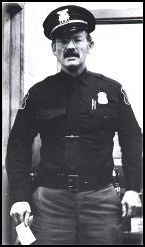 In 1954, the Township of Novi, Michigan decided to establish their own police department. While the Oakland County Sheriff had been patrolling the small farming community of approximately 5000 people, the Board of Trustees at that time had a vision for the future. Lee BeGole, a member of the Wayne County Sheriff’s Department and a World War II U.S. Army Veteran, was hired as Chief of Police. BeGole organized the fledgling organization, serving alone initially, and adding three or four officers later on. He was a dedicated law enforcement officer who served the City for 32 years.
In 1954, the Township of Novi, Michigan decided to establish their own police department. While the Oakland County Sheriff had been patrolling the small farming community of approximately 5000 people, the Board of Trustees at that time had a vision for the future. Lee BeGole, a member of the Wayne County Sheriff’s Department and a World War II U.S. Army Veteran, was hired as Chief of Police. BeGole organized the fledgling organization, serving alone initially, and adding three or four officers later on. He was a dedicated law enforcement officer who served the City for 32 years.
The Novi Police Department was originally housed in Novi Township Hall, a yellow, two story, cinderblock building at 25850 Novi Road, south of Grand River. At first, only the rear corner of the ground floor was allocated for police service. The entire Township and early City Government, including the volunteer fire department, occupied the remainder of the space. During the 1970’s, the police operations grew, until the Department occupied the entire building, displacing City Hall to a frame building situated east on Sixth Gate. Novi Police Headquarters remained at this location, until moving to the present 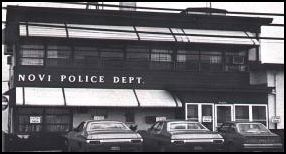 location in April, 1980. The original station continued to function in a variety of ways for another eighteen years. It was a firefighter training facility, temporary meeting place for the Novi VFW and American Legion, and even the Novi Jaycees "Haunted House" at Halloween. It was finally demolished in 1997 to make way for new development.
location in April, 1980. The original station continued to function in a variety of ways for another eighteen years. It was a firefighter training facility, temporary meeting place for the Novi VFW and American Legion, and even the Novi Jaycees "Haunted House" at Halloween. It was finally demolished in 1997 to make way for new development.
During its early years, the Novi Police Department was "operating on a shoestring". With one or two police cars and no police radios, the operation of the Novi Police Department was very basic. The few full-time officers were supplemented 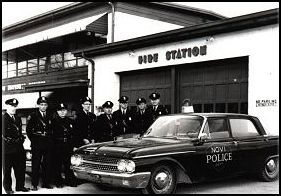 by reserves and part time officers at busier times. For many years, Chief BeGole bore the brunt of the patrol duties by himself, and in fact, he worked as both a police officer and a firefighter at first. The fire department was completely volunteer, so when a fire call came in, BeGole would drive the fire truck to the scene, so the volunteer firefighters could go directly there. This was in addition to his law enforcement duties.
by reserves and part time officers at busier times. For many years, Chief BeGole bore the brunt of the patrol duties by himself, and in fact, he worked as both a police officer and a firefighter at first. The fire department was completely volunteer, so when a fire call came in, BeGole would drive the fire truck to the scene, so the volunteer firefighters could go directly there. This was in addition to his law enforcement duties.
Police equipment was very basic, too. Officers furnished their own firearms and paid for their uniforms. The patrol cars did not have overhead emergency lights, but rather were equipped with red or blue spotlights and a "coaster siren" under the hood. Eventually, a single emergency light, red on one side 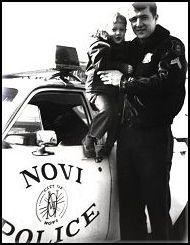 and blue on the other, was mounted in the center of the car roof. The specific number of cars in the original fleet is not known, but stories from retired officers spoke of leaving a 1968 Rambler running. One officer would drive it into the station driveway at the end of his shift, so that the next shift could go on duty and immediately drive out on patrol.
and blue on the other, was mounted in the center of the car roof. The specific number of cars in the original fleet is not known, but stories from retired officers spoke of leaving a 1968 Rambler running. One officer would drive it into the station driveway at the end of his shift, so that the next shift could go on duty and immediately drive out on patrol.
Since there was no radio communication, the citizens in need of police service would telephone, or would travel to the station to find "Lee", as everyone called him in those days. The second floor of Novi Township Hall was a living quarters. BeGole lived there for a time, and later a married couple took the position for low rent in exchange for answering the emergency line. If the fire department was needed, the fire siren on the roof would be sounded. If someone required police service, another switch on the wall served to activate a light mounted on a pole above "The Four Corners", the local name for the intersection of Grand River and Novi Road. The officer on patrol would see it and go to the police station to pick up the call.
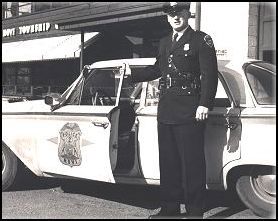 In 1969, the incorporation of Novi as a city signaled the need for a full service, full time police force. In the early 1970’s the Novi Police Department began to grow. A few more full-time officers joined with Chief BeGole, but reserve officers continued to be an integral part of the organization. As the City developed, the need for Police Reserves diminished and they finally disbanded and full time officers staffed all operations in preparation for the boom period that was to be the 1970’s.
In 1969, the incorporation of Novi as a city signaled the need for a full service, full time police force. In the early 1970’s the Novi Police Department began to grow. A few more full-time officers joined with Chief BeGole, but reserve officers continued to be an integral part of the organization. As the City developed, the need for Police Reserves diminished and they finally disbanded and full time officers staffed all operations in preparation for the boom period that was to be the 1970’s.
The Novi Police Department has occupied its present location at 45125 W. Ten Mile Rd. since April, 1980. The new building provided the space needed for the Department to match the expected growth of the City. It was designed to see the Department move into the 21st century, which it has done admirably. It has also seen a changing of the guard. In 1991, with Chief 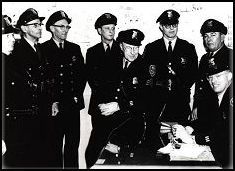 BeGole's retirement, Douglas F. Shaeffer became the second Chief of Police in Novi’s history. Under Chief Shaeffer’s administration, the Department added a new group of young Police Officers, schooled in the philosophy of community policing and in the use of new technologies now available to law enforcement. The officers of the Novi Police Department are required to have earned a four-year college degree before prior to being hired. As the Department grew and met the needs of a growing community, the officers were called upon to develop expertise in technical areas of law enforcement, never before attempted by the Novi Police. There were no well-established specialty units, such as evidence technicians or special response teams. This type of dynamic environment requires adaptable, intelligent individuals to be successful in it. The Novi Police Department intends to continue to provide the community with the highest caliber police officers, equipped and trained for the Twenty-first Century.
BeGole's retirement, Douglas F. Shaeffer became the second Chief of Police in Novi’s history. Under Chief Shaeffer’s administration, the Department added a new group of young Police Officers, schooled in the philosophy of community policing and in the use of new technologies now available to law enforcement. The officers of the Novi Police Department are required to have earned a four-year college degree before prior to being hired. As the Department grew and met the needs of a growing community, the officers were called upon to develop expertise in technical areas of law enforcement, never before attempted by the Novi Police. There were no well-established specialty units, such as evidence technicians or special response teams. This type of dynamic environment requires adaptable, intelligent individuals to be successful in it. The Novi Police Department intends to continue to provide the community with the highest caliber police officers, equipped and trained for the Twenty-first Century.
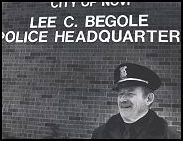 The tools used by the Novi Police have been modernized as well. The 1968 Rambler with the single red/blue roof light and coaster siren has been replaced by a large fleet of the latest police package of Ford hybrid Explorers and Chevrolet Tahoes, equipped with multifunction electronic emergency lights and siren. The old faithful police revolvers have been replaced by the newest in semiautomatic Glock pistols.
The tools used by the Novi Police have been modernized as well. The 1968 Rambler with the single red/blue roof light and coaster siren has been replaced by a large fleet of the latest police package of Ford hybrid Explorers and Chevrolet Tahoes, equipped with multifunction electronic emergency lights and siren. The old faithful police revolvers have been replaced by the newest in semiautomatic Glock pistols.
A completely new information system, with laptop computers in each patrol unit, and a new in-house data system at the station has taken over most of the hand-written reports and forms in the course of business. Automated fingerprints and photos have been installed for prisoner booking. Investigators have access to the entire data bank, and no longer have to comb files by hand. Instead they can associate names, locations, and incidents to assist in solving cases.
In order to accommodate these new forms of technology, an architectural revision at the Novi Police Department was completed in 2002. Construction provided the Novi Police Department with new training facilities and redesigned space for its operations. For many years, officers of the Novi Police Department traveled to a shooting range located in Farmington Hills for their firearms training. In 2008, the Novi Firearms Training Center, located at 26350 Lee Begole, was built with the assistance of drug forfeiture funds. In 2018, renovations took place at the Firearms Training Center adding a classroom which members of the police department conduct a variety of training including a MILO Range Simulator. The MILO Range Simulator allows for members of the police department to receive safe and realistic firearms training through various high-risk scenarios. In 2020, renovations began in the Public Safety Communication Center. These renovations include a fifth dispatching station, in addition to intergrading a new state-of-the-art radio system and kitchenette.
In July of 2017, the Novi Police Department received Commission on Accreditation for Law Enforcement Agencies (CALEA) accreditation and in March of 2018 achieved Michigan Law Enforcement Accreditation Commission (MLEAC) accreditation. Accreditation ensures the agency is in keeping with the highest standards of the State of Michigan and the Nation. The Novi Police Department was only one of the initial six agencies in the State of Michigan to achieve MLEAC accreditation and only one of three agencies to hold both state accreditation through MLEAC and national accreditation through CALEA. There are currently 81 State of Michigan agencies who are accredited or are in the process of accreditation with MLEAC.
 A veteran of the Novi Police Department, Director of Public Safety/Chief of Police David E. Molloy joined the organization in 1989. Throughout his tenure he served as an Officer, Detective, Undercover Officer, Uniform Sergeant, Detective Sergeant, Lieutenant, and Deputy Chief of Police. He was appointed Chief of Police in 2005 and appointed Director of Public Safety in 2010. Chief Molloy retired from the Department on Feb. 18, 2022.
A veteran of the Novi Police Department, Director of Public Safety/Chief of Police David E. Molloy joined the organization in 1989. Throughout his tenure he served as an Officer, Detective, Undercover Officer, Uniform Sergeant, Detective Sergeant, Lieutenant, and Deputy Chief of Police. He was appointed Chief of Police in 2005 and appointed Director of Public Safety in 2010. Chief Molloy retired from the Department on Feb. 18, 2022.
 Current Director of Public Safety/Chief of Police Erick Zinser has been with the Novi Police Department 23 years and was sworn-in to his current role on Feb. 22, 2022. Zinser was the Assistant Chief of Police from 2015-2022, and prior to that worked as a lieutenant, sergeant, detective, and police officer. He came to Novi from Mackinac Island, where he worked as an officer from 1991-1998. Zinser has his bachelor's degree in Criminal Justice from Ferris State University and his Master’s degree in Liberal Studies with a concentration in Interdisciplinary Technology from Eastern Michigan University.
Current Director of Public Safety/Chief of Police Erick Zinser has been with the Novi Police Department 23 years and was sworn-in to his current role on Feb. 22, 2022. Zinser was the Assistant Chief of Police from 2015-2022, and prior to that worked as a lieutenant, sergeant, detective, and police officer. He came to Novi from Mackinac Island, where he worked as an officer from 1991-1998. Zinser has his bachelor's degree in Criminal Justice from Ferris State University and his Master’s degree in Liberal Studies with a concentration in Interdisciplinary Technology from Eastern Michigan University.
Zinser is a member of the International Association of Chiefs of Police, Michigan Association of Chiefs of Police, Oakland County Association of Chiefs of Police, and Southeast Michigan Association of Chiefs of Police. He is also a graduate of the FBI National Academy in Quantico, Va., and the Police School of Staff and Command at Eastern Michigan University.
Chief Zinser and his wife Julie have two children.
Download the Police Districts Map above. Depending on what device you are using to view this page, a clickable Police Districts map may appear below.(Click on a district to send an email to sergeants. All sergeants can be reached at office phone 248-347-0562 or 248-348-7100.)
Novi and Other Local Sites
Michigan Websites (Government)
Michigan Websites (Other)
Federal Government/National Websites
Other Websites of Interest
Metro-Detroit Police Agencies - On the Web
Novi and Other Local Sites
- Ascension Providence Hospital
- City of Novi Government
- Novi Community School District
- Oakland County Government
- Oakland County Health Department
- Oakland County Prosecutors Office
- 52-1 District Court
- Transportation Improvement Association
- Help Against Violent Encounters Now (HAVEN)
Michigan Websites (Government)
- State of Michigan
- Michigan Legislature
- Michigan Department of Secretary of State
- Michigan Department of Transportation
Michigan Websites (Other):
- Crime Prevention Association of Michigan
- MICOPS – Concerns of Police Survivors
- Michigan Commission on Law Enforcement Standards
- Michigan Compiled Laws
- Michigan Gaming Control Board
- Michigan Information & Research Service
- Michigan Sex Offender Registry
- Michigan State Police Road Conditions
Federal Government/National Websites:
- Bureau of Alcohol, Tobacco & Firearms
- Central Intelligence Agency
- Drug Enforcement Administration
- Federal Bureau of Investigation
- National Archive of Criminal Justice Data
- National Criminal Justice Reference Service (NCJRS)
- National Drug Control Policy, Office of
- National Highway Traffic Safety Administration (NHSTA)
- National Law Enforcement Officers Memorial
- National Safety Council
- U.S. Department of Homeland Security
- U.S. Department of Justice
- U.S. Department of Transportation
- U.S. Government – House of Representatives
- U.S. Government – Senate
- U.S. Government – White House
Other Websites of Interest:
- AddictionCenter - Underage Drinking
- Association of Public Safety Communication Officials International (APCO)
- Drug Abuse Resistance Education (D.A.R.E.)
- Mothers Against Drunk Driving (M.A.D.D.)
- National Center for Missing and Exploited Children
- IDTrue - Neighborhood Watch
Metro-Detroit Police Agencies - On The Web:
- Ann Arbor Police Department
- Auburn Hills Police Department
- Beverly Hills Department of Public Safety
- Canton Township Department of Public Safety
- Clinton Township Police Department
- Dearborn Police Department
- Dearborn Heights Police Department
- Detroit Police Department
- Farmington Department of Public Safety
- Livonia Police Department
- Macomb County Sheriff Department
- Michigan State Police
- Milford Police Department
- Northville (City) Police Department
- Northville Township Police Department
- Oak Park Public Safety Department
- Oakland County Sheriff Department
- Plymouth (City) Police Department
- Royal Oak Police Department
- South Lyon Police Department
- Southfield Police Department
- Sterling Heights Police Department
- St. Clair County Sheriff Department
- Walled Lake Police Department
- Washtenaw County Sheriff Department
- Waterford Township Police Department
- Wayne Police Department
- Westland Police Department
- Wyandotte Police Department
- Ypsilanti Police Department


